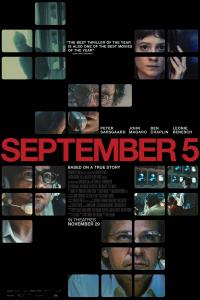Torrent details for "Black Like Me: The Definitive Griffin Estate Edition [blackatk]" Log in to bookmark
Controls:
Category:
Language:
 English
EnglishTotal Size:
9.87 MB
Info Hash:
5109913e6341a99ca60e38b8959ca79cc502710d
Added By:
Added:
09-02-2024 19:28 (edited 15-04-2024 12:39) by hayzee56

Views:
192
Health:

Seeds:
2
Leechers:
0
Completed:
395

Black Like Me: The Definitive Griffin Estate Edition
(azw3,epub,mobi,pdf)
October 28, 1959
For years the idea had haunted me, and that night it returned more insistently than ever.
If a white man became a Negro in the Deep South, what adjustments would he have to make? What is it like to experience discrimination based on skin color, something over which one has no control?
This speculation was sparked again by a report that lay on my desk in the old barn that served as my office. The report mentioned the rise in suicide tendency among Southern Negroes. This did not mean that they killed themselves, but rather that they had reached a stage where they simply no longer cared whether they lived or died.
It was that bad, then, despite the white Southern legislators who insisted that they had a "wonderfully harmonious relationship" with Negroes. I lingered on in my office at my parents' Mansfield, Texas, farm. My wife and children slept in our home five miles away. I sat there, surrounded by the smells of autumn coming through my open window, unable to leave, unable to sleep.
How else except by becoming a Negro could a white man hope to learn the truth? Though we lived side by side throughout the South, communication between the two races had simply ceased to exist. Neither really knew what went on with those of the other race. The Southern Negro will not tell the white man the truth. He long ago learned that if he speaks a truth unpleasing to the white, the white will make life miserable for him.
The only way I could see to bridge the gap between us was to become a Negro. I decided I would do this.
I prepared to walk into a life that appeared suddenly mysterious and frightening. With my decision to become a Negro I realized that I, a specialist in race issues, really knew nothing of the Negro's real problem....
THE HISTORY-MAKING CLASSIC ABOUT CROSSING THE COLOR LINE IN AMERICA’S SEGREGATED SOUTH
“One of the deepest, most penetrating documents yet set down on the racial question.”—Atlanta Journal & Constitution
In the Deep South of the 1950’s, a color line was etched in blood across Louisiana, Mississippi, Alabama, and Georgia. Journalist John Howard Griffin decided to cross that line. Using medication that darkened his skin to deep brown, he exchanged his privileged life as a Southern white man for the disenfranchised world of an unemployed black man.
What happened to John Howard Griffin—from the outside and within himself—as he made his way through the segregated Deep South is recorded in this searing work of nonfiction. His audacious, still chillingly relevant eyewitness history is a work about race and humanity every American must read.
Tags: Biography & Autobiography, General, Cultural; Ethnic & Regional, African American & Black, Historical, Social Science, Ethnic Studies, American, African American & Black Studies, Race & Ethnic Relations
isbn:9780930324728, amazon:0930324722, google:dH4eAwAAQBAJ










































